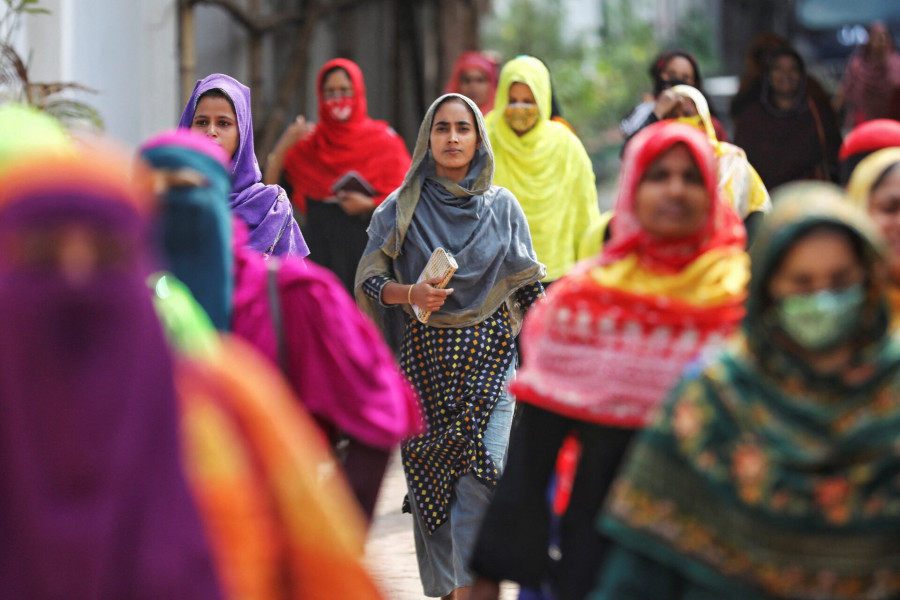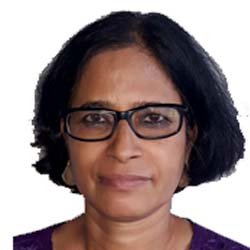Columns
Whither women’s rights in Bangladesh?
If the state neglects women’s rights, their place in society and politics could likely shrink further.
Smruti S Pattanaik
A few days ago, Islamic political parties, led by the conservative Hefazat-e-Islam (HeI), rallied in Dhaka’s sprawling Suhrawardy Udyan to address 20,000 supporters who were demanding the winding up of the Women’s Affairs Reform Commission set up by the interim regime and the appointment of a new Commission comprising Islamic scholars as well as representatives from “devout segments of the female population”.
The Commission submitted its report with 433 recommendations on April 19, 2025. Among other things, it recommended equal rights for all women and men, including in inheritance, marriage and divorce. Unsurprisingly, the Islamists who have consistently argued against women being in public spaces and their right to inheritance were worried. A writ petition has already been filed in the Bangladesh High Court challenging the recommendation of the Women’s Commission.
Not long ago, the Shahbag police arrested an Islamist who asked a Dhaka University female student to dress appropriately. Following the arrest, a mob camped in front of the police station and freed the accused, and also garlanded him later. Such instances do not end there. Women’s football teams were prevented from playing following threats from the Islamists. Similarly, an effigy of a saree-clad woman near the Aparajeyo Bangla being beaten with shoes by Islamists to demonstrate their anti-women stance and terming women in public places as whores became viral in social media.
Hefazat and women’s rights
The rally of the Islamists against women’s rights is not new. In 2009, the Hefazat-e-Islam (HeI), the largest Islamic organisation in Bangladesh, demanded the withdrawal of the draft of the National Women’s Development Policy Bill initially proposed by the military-backed caretaker regime. This was based on a Supreme Court judgement that provided guidelines to safeguard women in the workplace while disposing of a petition by the Bangladesh National Women Lawyers Association (BNWLA). Later, Hasina’s government passed a watered-down version of the original bill in 2011 to appease the Islamists.
In 2013, Hefazat-e-Islam developed a 13-point demand charter as the Shahbag movement against Islamists gained momentum. Among the points reiterated by Hefazat include demands to declare Ahmediyas as non-Muslims, end women’s shameless behaviour and dressing styles and introduce the Blasphemy law.
The HeI and its leaders are mostly drawn from the madrassa. Therefore, they are one of the forces available for street protests. Their demonstration against the Shahbag movement in 2013 and the bloggers whom they termed as ‘atheist’ resulted in Hasina saying that she cannot protect the bloggers if they write against ‘Islam’. This indicates the state’s shrinking responsibility in protecting its citizens and giving in to Hefazat’s demands.
Apolitical Hefazat?
The HeI that describes itself as apolitical consists of members from other Islamic parties. It successfully forged a close political relationship with the Awami League regime that was then in power. This helped them influence government policies, especially those related to education, secular bloggers and women. While the government recognised madrassa degree—Dawra-e-Hadith—as equivalent to a master’s in Islamic studies and Arabic in 2018, certain amendments were made to the textbook, including removing pictures of girls and specifying what boys can do and what girls cannot. They also successfully replaced the Themis or Lady Justice statue at the Supreme Court compound.
The Awami League government used the HeI to project its Islamic credentials and keep the Jamaat-e-Islami—the largest Islamic party in the country at bay. The HeI also opposed the installation of the statue of Sheikh Mujibur Rahman, the first President of Bangladesh.
It was not long ago that the founder of the HeI, Shah Ahmad Shafi’s description of women as ‘tetul’ (tamarind), something that makes men salivate, drew widespread criticism. Their attitude towards women and demand to not allow them to work alongside the men earned them the title, ‘Talibaner aar ek naam–hefazat-e-Islam’, during the Shahbag movement.
Hefazat-e-Islam has emerged as a stronger force in the past few years due to the patronage of the Awami League and now by the interim regime in Bangladesh. Professor AFM Khalid Hossain, the adviser on Religious Affairs, is the Vice President of the HeI. It is believed that the banned Harkat-ul-Jihad-al-Islami (HuJI), whose cadres once fought in Afghanistan, has taken control over the HeI after they successfully inducted themselves in the Central Committee reconstituted in 2023.
Shrinking space for women
Following the fall of the Hasina government, there has been a rise in politics on Islamism and an erosion of secularism, which directly impacts women’s rights. While conservative religious political parties have emphasised Islamic idioms and principles to find a prominent place in the constitution, there is a move towards forgoing secularism in the constitution introduced by Sheikh Mujibur Rahman.
The Constitution Reform Commission has emphasised ‘pluralism’ that would replace secularism. Similarly, religious political parties want an emphasis on Bangladesh’s Muslim identity. The Bangladesh Nationalist Party (BNP) has focused on returning to the constitution with the 5th amendment brought by General Ziaur Rahman, the BNP’s founder. The party has been critical of the increasing violence against women; women represent just 13.34 percent of the Party’s Central Committee.
The Awami League also had insufficient representation of women. Though Islamic political parties, like their compatriots in other political parties, support 3 percent representation of women, they remain obscure in the decision-making bodies of these religious political parties. Yet, most religious political parties have opposed the Women’s Commission’s recommendation.
For instance, the Jamaat-e-Islami in its social media handle X wrote, “directly contradictory to the provisions of the Holy Quran and this is a well-planned attack on the existence of Islam and Muslim identity. It is demanded to repeal the Muslim inheritance law and give equal property to men and women”. They say any attempt to repeal it “means to take a stand directly against the Quran. This is not only an insult to Shariah law, but also a major blow to the core of Muslim identity.”
The HeI’s stance doesn’t differ from other religious political parties. If the state doesn’t take action to protect women’s rights, their place in society and politics will likely shrink further.




 8.83°C Kathmandu
8.83°C Kathmandu















